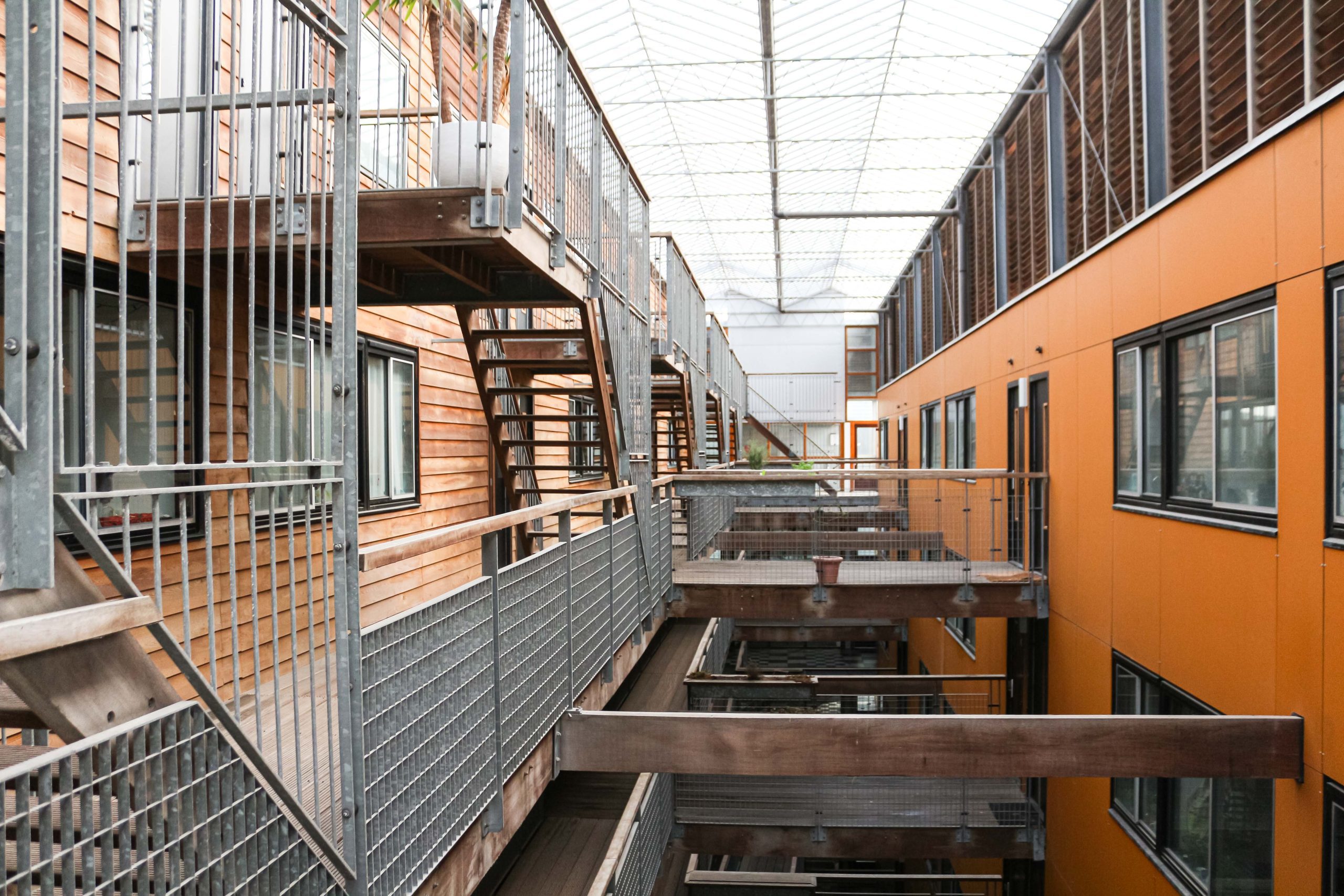Students living in Delft may apply for an energy subsidy, but for many, the requirements make this difficult. The Municipality is looking for an alternative.
Student housing on the Balthasar van der Polweg on the TU Delft campus. (Photo: Justyna Botor)
Now that energy costs are skyrocketing, many people on low incomes are applying for the energy subsidy worth EUR 1,300 that is available through the Municipality. Up to 22 August, 2,758 residents of Delft had automatically received the subsidy. Up to that date, Delft had processed 2,418 applications of which 1,872 were accepted and 546 rejected.
How many of these were students is not known. The Municipality does not currently have the capacity to record this, a spokesperson said. Delft is one of three municipalities in the Netherlands where students may claim the energy subsidy. All the other municipalities are still following the Cabinet’s advice to exclude students, in particular because they believe that it is better if DUO takes on this task.
The vacuum in which Delft, as an exception, is operating has meant that Delft itself has drafted the conditions determining the eligibility of students for the energy subsidy. And STIP, the Municipal Council party, hears that it is still hit and miss for students from its constituents. “STIP is very happy with the fact that the Municipality has acted to make progress, given that some students were indeed compensated. But we believe that every household that falls under the standard welfare benefits level has a right to the energy subsidy,” says party leader Sophie Wentink. She intends to raise the issues about the position of TU Delft students at a committee meeting on Thursday 8 September (in Dutch).
‘Everybody is feeling the effects of rising energy prices’
According to Wentink, the requirement that students need to have their own energy supply contract is blocking their application. Many students pay for their energy through landlords such as Duwo, the student accommodation agency, and so do not have an energy contract in their own name. A Municipality spokesperson says that Delft believes that it is helping the students who need the subsidy the most, but Wentink does not believe this. “We view this condition as crazy, especially because it only applies to students. Everybody is feeling the effects of rising energy prices.”
Delft apparently sees this too, seeing the Municipality’s answers to Delta’s questions. The spokesperson stated that the Municipality is investigating options ‘so that it can compensate this group of students through the individual special assistance package’. The spokesperson did not know when this would result in a concrete regulation. ‘As quickly as possible, but the regulation first needs to be worked out properly and made executable.’
In the meantime, various lobbying activities are underway to force policy to help students nationwide. Delft is also involved in the lobbying. The Alderman for Poverty Joëlle Gooijer signed a letter to Ministers Dijkgraaf (Education, Culture and Sports) and Schouten (Poverty Policy, Participation and Pensions) to compensate students through a national policy and to leave the implementation to DUO. Delft Council Members of the Volt, GroenLinks, STIP and ChristenUnie parties signed another letter to these Ministers as well as Minister Kaag (Finance) with the same call to action, though DUO was not mentioned in the letter.
Lobbying activities have been given more time as the Parliamentary Debate scheduled for 7 September has been postponed at the request of Minister Schouten. The reason is that the Cabinet still needs to determine if it can continue its policy now that a judge in Nijmegen ruled that students cannot simply be excluded. For students, this means a longer period of uncertainty about their finances. The Cabinet appears to have plans to give students not living at home a higher basic grant, but this will only be made known on Prinsjesdag (the opening of Parliament after the summer recess) on 20 September.
Saskia Bonger (Delta) / Bas Belleman (HOP)
- Do you think you qualify for the energy allowance? You can apply for it Delft here (in Dutch).
Do you have a question or comment about this article?
s.m.bonger@tudelft.nl


Comments are closed.